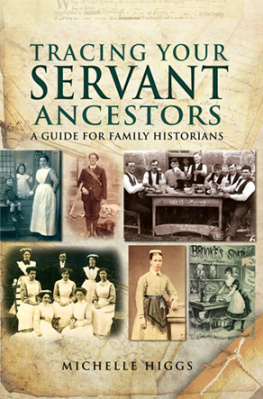I - Engaging the Maid
*
The most common method of engaging a servant is through an intelligence office. There are nearly as many different kinds of these as there are types of domestics who patronize them. An office with a high standing should be selected. This is not only because a lower grade of employes is to be found at the other variety, but also on account of the methods followed in some of the cheaper offices. Such establishments occasionally have unscrupulous managers, who make a business of encouraging the maids they place to change often, in order that the renewed fee of the employer may come to the office. This practice has become common enough in some States to justify legislative intervention.
In nearly every city or town there are reputable agencies, sometimes conducted as business enterprises simply, sometimes run in connection with church or benevolent societies, where a register is kept of the references of servants for whom places are secured. These references are usually held as confidential between the agent and the would-be employer, and the latter is thus enabled to learn with some certainty the qualifications of the maid she thinks of engaging.
Once in a while a mistress is so fortunate as to secure a maid by the recommendation of some other housekeeper or through a servant in her own or a friend's employ. Maids engaged in this fashion are often more satisfactory than those found at an office, from the fact that they enter their new positions somewhat prejudiced in favor of the employer, instead of holding the attitude of armed neutrality often found in servants who seek places through an office.
Wherever the maid is met and in whatever capacity she is engaged, there should be a clear understanding from the beginning as to what her work shall be. The mistress should begin the interview with the maid she seeks to employ by stating what are the duties of the place she offers and inquiring as to the capabilities of the maid for the position. Often a few questions and answers will prove the unsatisfactoriness of the situation or of the applicant. In this case, the affair should be dropped at once. Never, no matter what the exigency, should the housekeeper endeavor to persuade a domestic into taking a place for which she is disinclined. It is a mistake almost sure to result badly.
The housekeeper should come to an interview with a prospective maid with an open mind, and not allow herself to be prejudiced by appearances. An aspect of sullenness is frequently the result of shyness and does not indicate unwillingness to work or a bad temper. The would-be employer should speak gently and not ask questions with a manner of having the maid in the witness-box. Such treatment will sometimes frighten a timid maid into inability to answer intelligently, and the employer will produce an impression of her own hardness and severity which she will find it difficult to overcome later. The pert and self-sufficient maid is likely to declare her nature within a very few minutes. Kindness will not intensify these qualities in her, while it will enable a bashful girl to appear to better advantage.
Before interviewing a maid, the mistress should have clearly framed in her own mind the outlines of the work required, and should know definitely what queries she means to put. Each mistress probably has her own way of learning the maid's capabilities and of explaining the work she wishes done. The housekeeper who has had little practice in engaging servants will do well to make up a formula of inquiries in advance. To begin with, it should be ascertained what experience the maid has had, what was her last place, how long she stayed in it, what were her reasons for leaving it. Having thus learned if the servant seems to be in the main satisfactory, so far as disposition and willingness are concerned, the mistress should proceed to explain what is the work of the house, putting such questions as will enable the girl to tell of her competency.
For instance, in engaging a maid for general housework, she should be asked if she understands plain cooking of meats and vegetables; if she can make bread, biscuit and muffins, soups and plain puddings; if she can follow a recipe, etc. More elaborate culinary accomplishments can rarely be looked for in a maid-of-all-work. She should also be able to do washing and ironing, have some knowledge of chamber-work and of waiting, and be willing to learn. There are so many qualifications for the general-housework girl, who must be a sort of Pooh Bah in petticoats, that it is no wonder the supply is usually inadequate to the demand.
There should be no attempt on the part of the mistress to make things in the place she offers seem better than they are. A servant who is brought into a house under false pretences is never likely to do well. If the prospective mistress entertains a good deal, if she is likely to have guests staying in the house often, she should give full notice of her intention from the start, explaining at the same time that she is willing to do all she can to lighten the burden of extra work. So far as possible, the amount of labor should be put clearly before the employe, so that if the place does not suit her she may know its drawbacks from the beginning. Naturally, it should also be the part of the mistress to point out what are the especial advantages of the situation, and to let the maid see that the employer is ready to do anything in her power to prevent unusual toil from being too heavily felt. No chance should be left for misunderstanding upon any point, and from the first it should be comprehended that a spirit of accommodation and kindliness will be accorded by the mistress and expected from the maid.
After the mistress and maid have reached some kind of an adjustment that makes them feel the relation of employer and employed would be desirable to both, it is time for the housekeeper to make special inquiry about the maid's references. If the office is a reputable one it may be taken for granted that the servants' characters are in the main what they should be, but the mistress will wish to go into details and either see the former employer or write to her.
This matter of references is most important. The mistress owes it to the maid as well as to herself to see that these are all they should be. No matter how excellent is the written reference shown by the servant, it should be verified by the prospective employer. In many cases the mistress of a departing maid will write for her an uncandid reference for the sake of saving herself an unpleasant scene or from a mistaken kindliness. She does not wish to endanger the maid's chances of securing further employment, and she prefers to stretch the truth to being honest in the recommendation she bestows. A lamentable want of honor prevails between housekeepers in this regard, and the woman who has not found a maid in the least satisfactory while in her own employ will send her forth with a reference which makes it tolerably sure she can obtain a situation elsewhere without difficulty. On the other hand, the new mistress is no less heedless and will take a servant into her employ simply on the strength of a written reference without giving herself the pains to inquire as to its accuracy.









